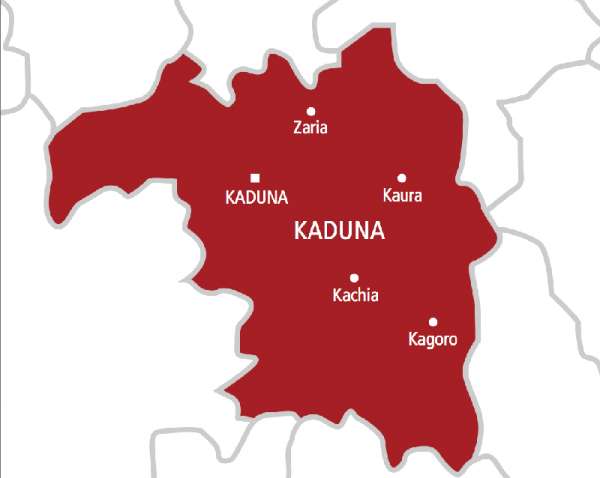Trainers on Tuesday warned that actions or inactions of media professionals would have consequences on the nation’s economy
By Ijeoma Popoola
Trainers on Tuesday warned that actions or inactions of media professionals would have consequences on the nation’s economy.
They said this at a capacity building organised for journalists by Chevron Nigeria Ltd. (CNL) in Lagos.
They said that journalists should not keep silent against corruption and other ills but should constructively criticise to promote excellence.
They added that challenges should not deter media professionals from discharging their constitutional duties.
The News Agency of Nigeria (NAN) reports that no fewer than 30 media professionals were at the training organised by Chevron in partnership with the Lagos Council of Nigeria Union of Journalists (NUJ).
The training had the theme: Driving Nigeria’s Business Economy: The Media Perspective.”
Mr Emeka Ugwuanyi, the Chief Executive Officer, Profagus Digital Ltd. and Publisher of the Business Intelligence Africa Magazine, said that Nigeria had enormous potential in its oil and gas sector.
Ugwuanyi, however, noted that the country was being hindered by oil theft and pipeline vandalism.
He also listed infrastructure deficit, policy and regulatory instability, and lack of governance transparency among factors mitigating against realisation of the country’s potential in the sector.
He spoke on: “Tapping the Oil and Gas Potential of the Nigerian Economy.”
Ugwuanyi said that journalists should expose ills and applaud efforts at advancing the country.
He added that governments should do more to fight oil theft, implement strong anti-corruption policies, develop infrastructure and advance technology, among other measures.
A former Editor-in-Chief of NAN, Mr Olusegun Aribike, urged journalists to ask questions about projects and their implementation to promote good governance.
Aribike spoke on: “Towards Nigeria’s Realistic Budget.”
He said that government budgets must be realistic and geared toward meeting the needs of the citizens.
“In planning a realistic budget, therefore, the government must take into consideration, the interest of the people,” he said.
Also speaking, Dr Ademolake Irinyemi, a lecturer, said that journalists should do more to create awareness of the nation’s numerous natural endowments in the waters.
Irinyemi spoke on: “Maximising the Gains of Nigeria’s Blue Economy.”
He listed maritime insecurity, climate change and environmental mismanagement as some factors hindering effective realisation of the potential of nation’s blue economy.
Mr Blessing Anaro, Editor, Southern Operations, Blueprint Newspaper, said it was wrong for governments or organisations to raise funds from the capital and money markets for specified projects and spend them on other things.
Anaro spoke on: “Transforming Nigeria’s Economy Through the Capital and Money Markets.”
He noted that this was the trend some years ago, particularly the state governments.
“Then, lots of funds were raised, supposedly for some ‘elephant’ projects, but many of such projects had still births. Nothing was heard about them,” he said.
Earlier, Mr Esimaje Brikinn, General Manager, Policy, Government and Public Affairs of Chevron Nigeria Ltd., said the oil company embarked on the partnership because it believed in the value derivable from developing human capital.
He was represented by Mr Victor Anyaegbudike, the organisation’s Communications Manager.
“The maiden edition of this programme held last year across Lagos, Delta and the Federal Capital Territory.
“Over 90 journalists participated in the training which was geared toward building the capacity of media practitioners to enhance their skills and abilities to perform their duties,” he said.
According to him, the organisation also sponsors the Advanced Writing and Reporting Skills programme, in collaboration with the Pan Atlantic University, Lagos.
“Over 120 journalists have benefitted from the programme since its inception in 2014,” he said.
He added that Chevron Nigeria Ltd. was committed to lowering carbon emission and reducing gas flaring in Nigeria.
“Through investments in gathering and processing of associated gas, routine flaring has been reduced by over 97 per cent in the past 10 years in CNL’s operations,” he said.
The Chairman of Lagos Council of NUJ, Mr Adeleye Ajayi, said the training came up at a time Nigeria’s business climate was undergoing rejuvenation by the Federal Government.
“It has, therefore, become imperative to collate all shades of opinion, views on how to bring the Nigerian economy back on track.
“Experts are worried about petroleum products pricing, foreign exchange volatility, imports and exports regime, stock market and the need for realistic budget system,” he said. (NAN)




